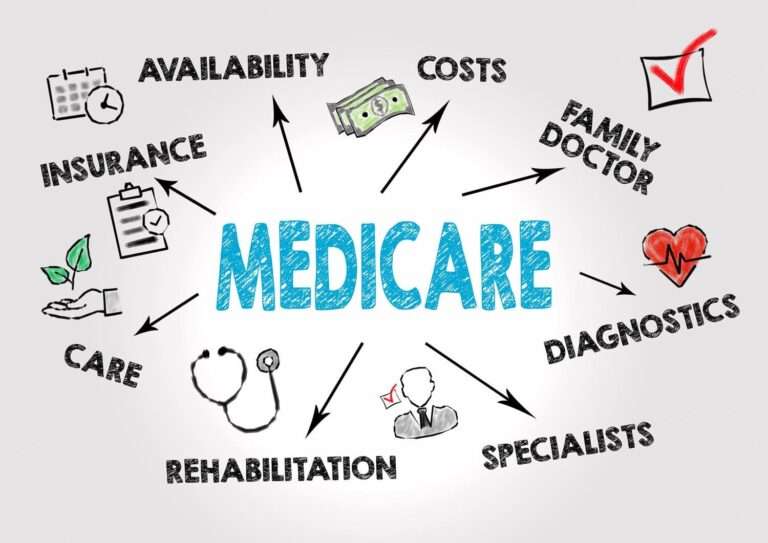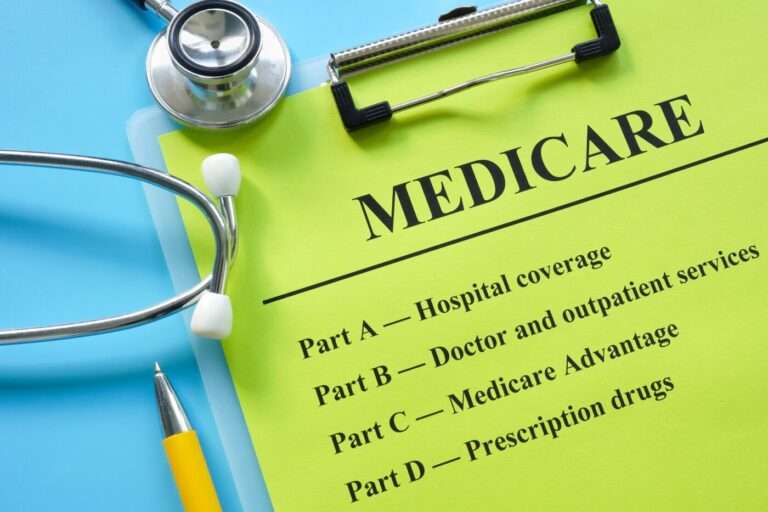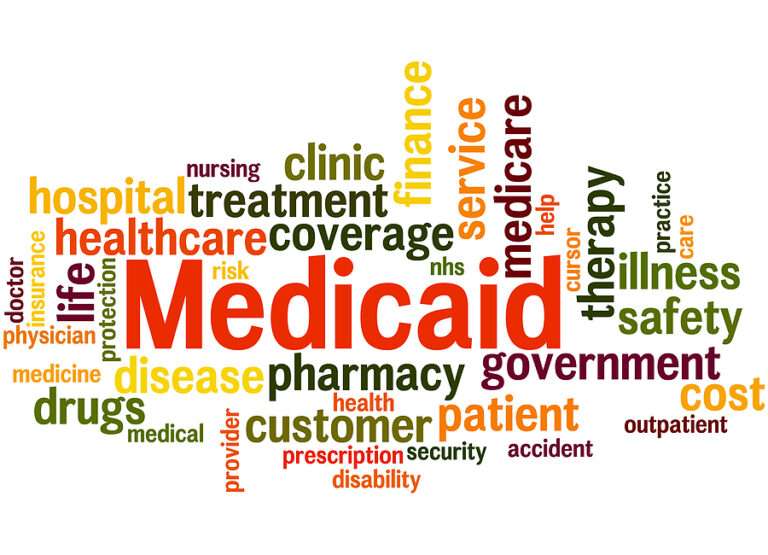
Medicare is a federal health insurance program for people
age 60 or older. People younger than age 65 with certain
disabilities, permanent kidney failure, or amyotrophic
lateral sclerosis (ALS, also known as Lou Gehrig’s
disease), may also be eligible for Medicare. The program
helps with the cost of health care, but it doesn’t cover all
medical expenses or the cost of most long-term care. You
have choices for how you get Medicare coverage. If you
choose to have Original Medicare (Part A and Part B)
coverage, you can buy a Medicare Supplement Insurance
(Medigap) policy from a private insurance company.
Medigap covers some of the costs that Medicare does
not, such as copayments, coinsurance, and deductibles.
If you choose Medicare Advantage, you can buy a
Medicare-approved plan from a private company
that bundles your Part A, Part B, and usually Part D
(prescription drug coverage) into one plan.
Parts of Medicare

Part A.
Medicare Part A (hospital insurance) helps cover
inpatient care in hospitals (including critical access
hospitals) and skilled nursing facilities (not custodial
or long-term care). Part A also pays for some home
health care and hospice care and inpatient care in a
religious non-medical health care institution.
Part B.
Medicare Part B (medical insurance) helps cover
medically necessary doctors’ services, outpatient
care, home health services, durable medical
equipment, mental health services, and other medical
services. Part B also covers many preventative
services.
Other parts of Medicare are run by private insurance companies that follow rules set by Medicare. • Supplemental (Medigap) policies help pay Medicare out-of-pocket copayments, coinsurance, and deductible expenses. • Medicare Advantage Plan (previously known as Part C) includes all benefits and services covered under Part A and Part B, plus prescription drugs and additional benefits such as vision, hearing, and dental, bundled together in one plan. • Medicare Part D (Medicare prescription drug coverage) helps cover the cost of prescription drugs.
A word about Medicaid

Medicaid and Medicare are 2 different programs.
Medicaid is a state-run program that provides hospital and
medical coverage for people with low income. Each state
has its own rules about who’s eligible and what Medicaid
covers. Some people are eligible for both Medicare and
Medicaid. For more information about the Medicaid
program, contact your local medical assistance agency,
social services office.
Who can get Medicare?
Medicare Part A (hospital insurance)
People age 65 or older, who are citizens or permanent
residents of the United States, are eligible for Medicare
Part A. You’re eligible for Part A at no cost at age 65 if 1
of the following applies:
• You receive or are eligible to receive benefits from
Social Security or the Railroad Retirement Board
(RRB).
• Your spouse (living or deceased, including a divorced
spouse) receives or is eligible to receive Social
Security or RRB benefits.
• You or your spouse worked long enough in a
government job through which you paid Medicare
taxes.
• You are the dependent parent of a fully insured
deceased child.
If you don’t meet these requirements, you may be able
to get Medicare Part A by paying a monthly premium.
Usually, you can purchase this coverage only during
designated enrollment periods.
NOTE: Even though the full retirement age for Social
Security is no longer 65, you should sign up for Medicare
3 months before your 65th birthday. You can apply at
www.ssa.gov.
Before age 65, you are eligible for Medicare Part A at no
cost if 1 of the following applies:
• You’ve been entitled to Social Security Disability
Insurance (SSDI) benefits for 24 months.
• You receive a disability pension from the RRB and
meet certain conditions.
• You receive SSDI benefits and have Lou Gehrig’s
disease (amyotrophic lateral sclerosis).
• You worked long enough in a government job through
which you paid Medicare taxes and have met the
requirements of the SSDI program for 24 months.
• You’re the child or surviving spouse age 50 or older,
including a divorced surviving spouse, of a worker
who has worked long enough under Social Security
or in a Medicare-covered government job. Also, you
meet the requirements of the SSDI program.
• You have permanent kidney failure (end-stage renal
disease) and you receive maintenance dialysis or a
kidney transplant and 1 of the following applies:
—You’ve worked long enough under Social Security or
the railroad retirement system.
—You’ve worked long enough in a Medicare-covered
government job.
You’re the child or spouse (including a divorced
spouse) of a worker (living or deceased) who has
worked long enough under Social Security, or the
5
railroad retirement system. Or, they have worked in
a Medicare-covered government job.
